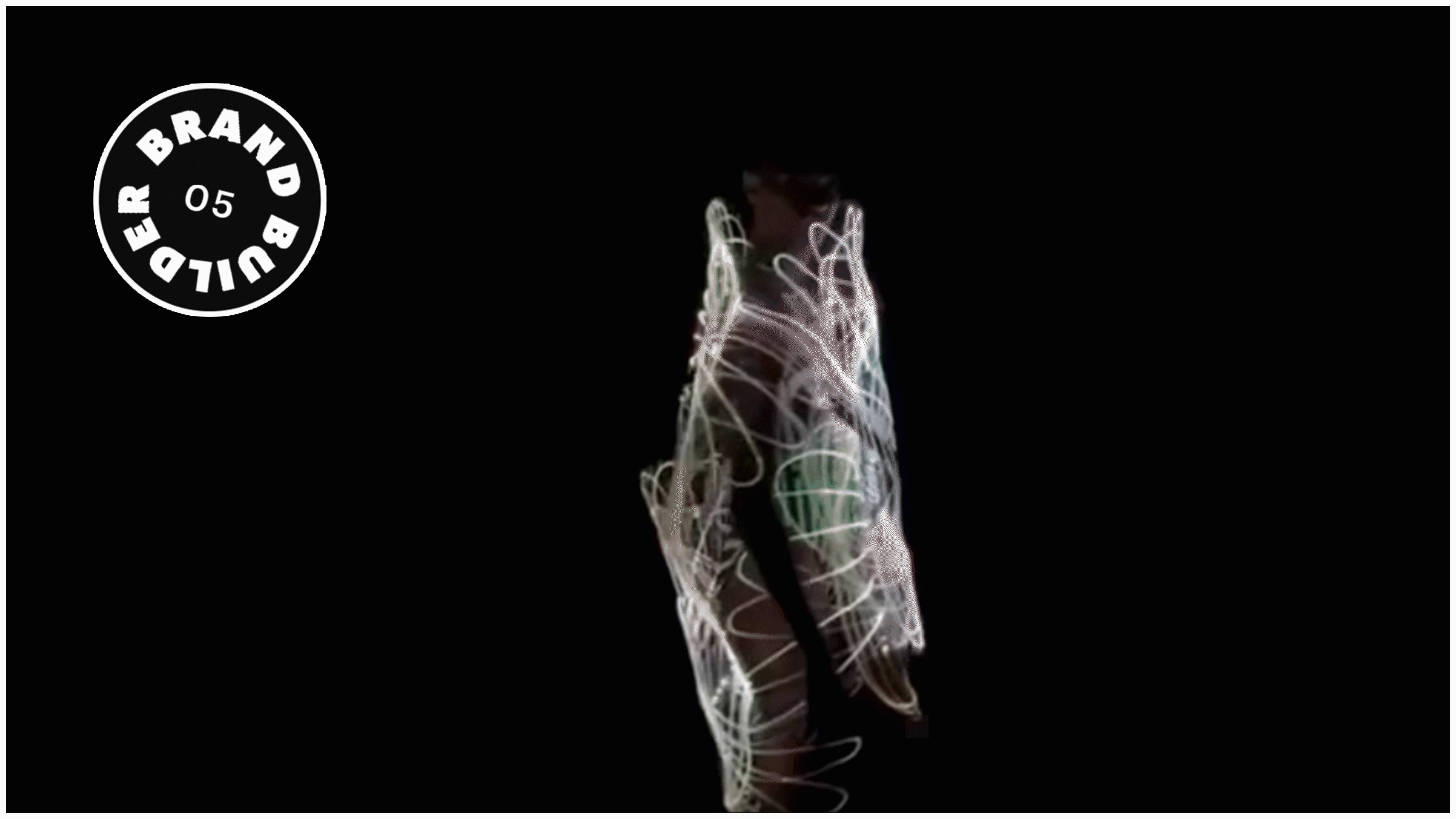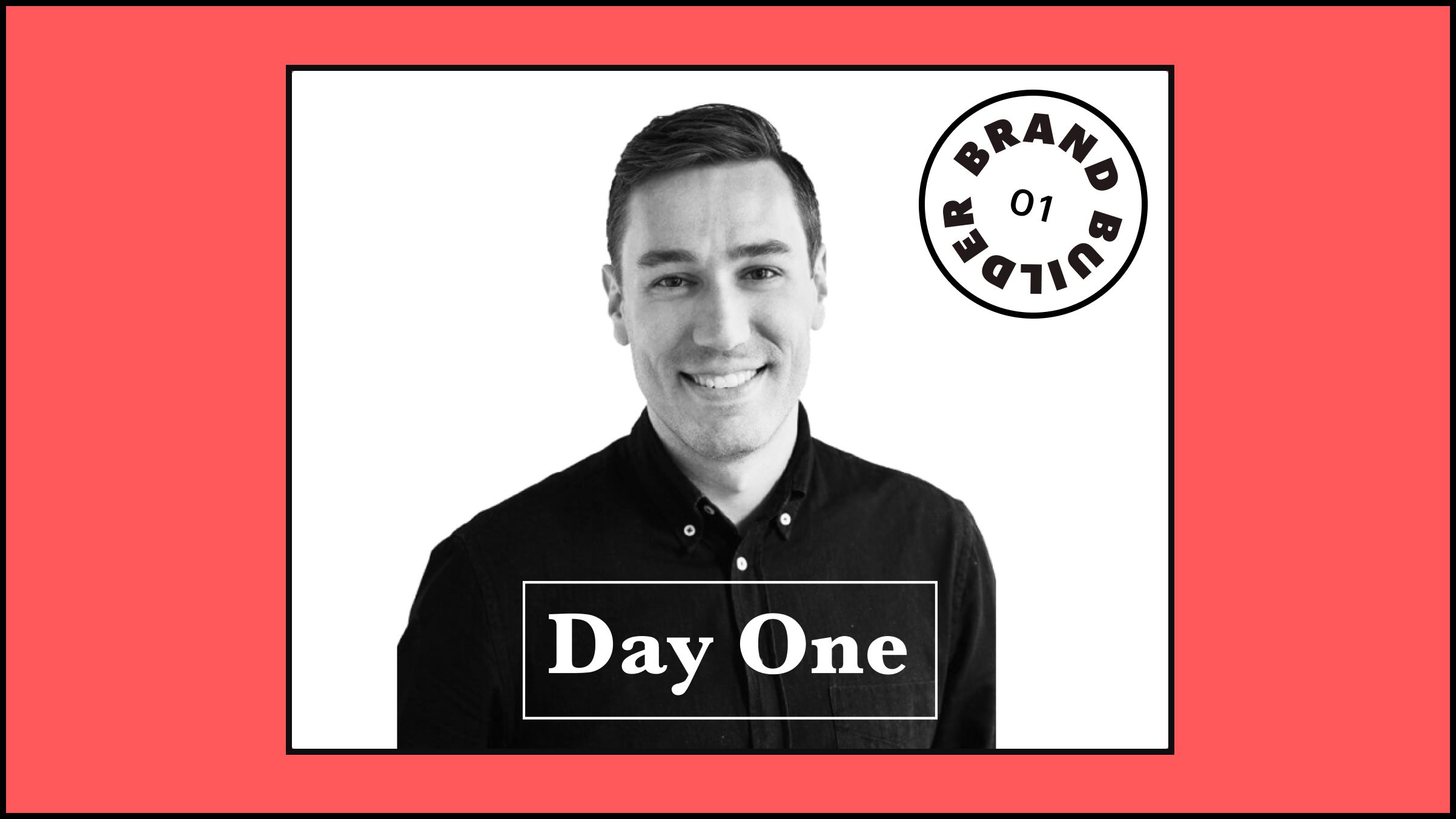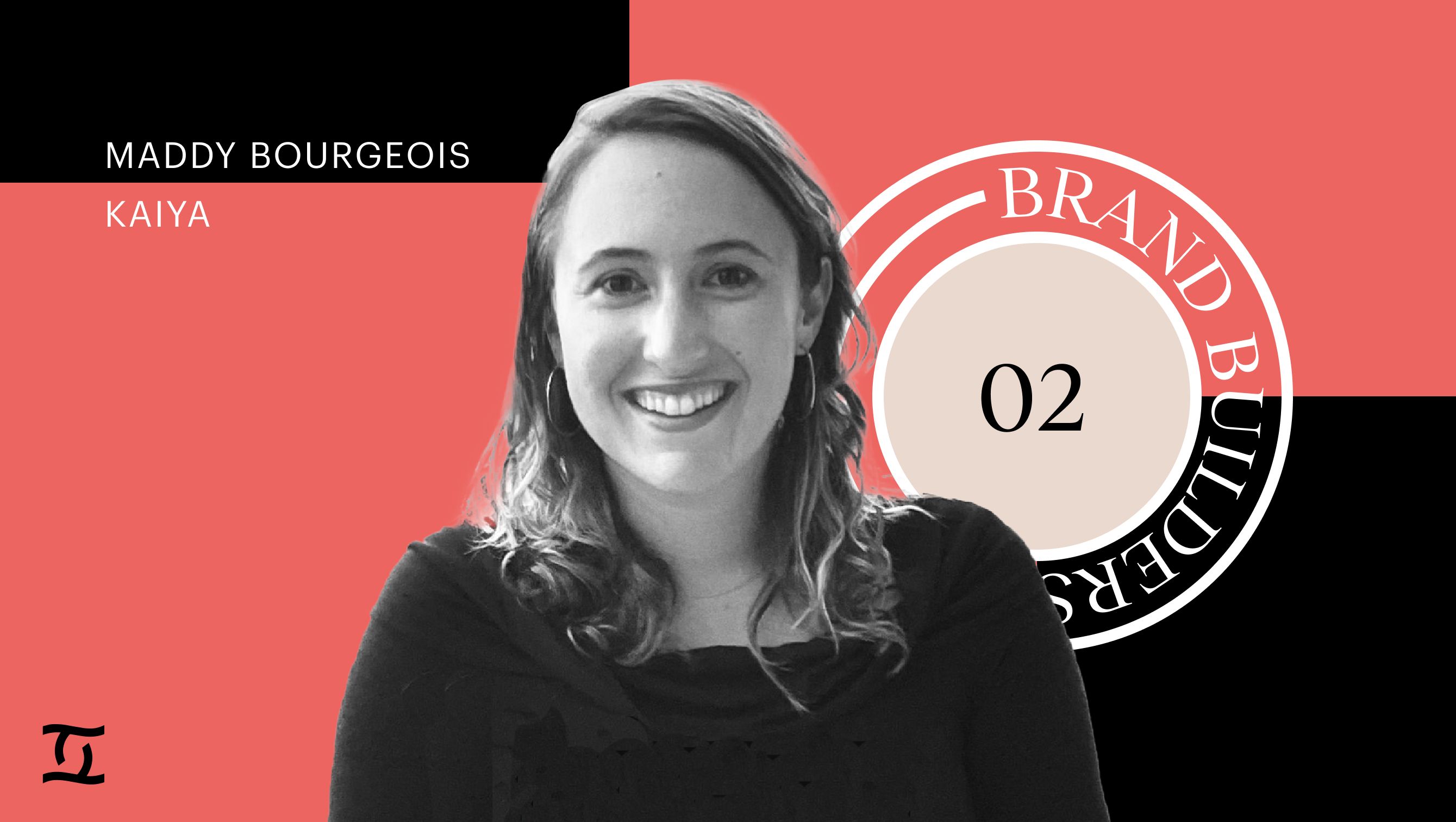
Brand Builders: Yuchen Zhang, Wearable Media
Yuchen Zhang is a designer poised at the intersections of fashion, technology, and art — and she's not stopping there. After cutting her teeth at leading brand and design firms, such as Pentagram, Red Antler, and Together's earliest iteration, ABC Design Lab, Yuchen left branding to pursue innovative, ground-breaking endeavors of her own.
With her business partner Hellyn Teng, Yuchen co-founded Wearable Media, a studio that integrates electronics and big data into fashion. Since its 2017 founding, Wearable Media's work has been featured in The Verge, Columbia University, and even made the stage in Mariah Carey's Caution tour. Throughout her career, Yuchen has continually sought to push the boundaries of what we understand design, technology, and fashion to be — and we were honored to talk with her about what it means to design with these interwoven interests.
Hi Yuchen! Can you introduce us to your current pursuits?
I'm actually in a really funny time of my life — it's a very transitional time. At the beginning of this year, I transitioned to a more full-time job at a corporate, digital agency. I'm working as a creative lead, and interestingly enough, it's completely opposite of every other place I've worked.
We work on the very end of making sure a digital product or platform is being implemented — versus all the other agencies I've worked with are about starting a creative idea or creating a vision for a product or brand. But now I focus on the details. It's really cool.
That's really cool. So much of what we do is balancing ideation with real-world implementation. Can you share more about what your work looks like?
It's an interesting challenge with my current type of job. It's a completely new journey for me versus working at Red Antler or even teaching courses about design in general. So much of that was about thinking of a blue sky scenario: what is the ideal scenario versus understanding how does this actually touch the ground?
Instead of thinking of a blue sky — what a product or ideal scenario would be — right now what I do is more connected with my entrepreneur experience with Wearable Media. For example, if I'm designing a digital product for a large company, I do user interviews and think about personas. I also talk with a lot of the departments involved with the product and try to understand how this large organization works — and what type of data they collect. Then, I can determine what kind of information can be presented.
In addition to your full-time job, you're the co-founder of Wearable Media. Can you introduce us to your company and tell us what inspired this work?
I started Wearable Media about four years ago with the idea that I could change the storytelling portion behind clothing by integrating data visualization or technology — either into the production of clothing or into the final outcome of the clothing.
This manifested itself through a series of conceptual clothing: a jumpsuit that tells you when asteroids are near earth, or a data visualization jacket that's cut by all the data selected from NASA's website about global temperature. When we started Wearable Media, it was more on the conceptual side. But as we've worked on these projects, we've realized that we also have skills to help fashion companies turn their conceptual ideas into reality through wearable tech and fashion tech.
It's so cool to see the thought and intricacies of all of this merging together — the intersection of design, technology, media, fashion, and data. How have you grown as a person and a designer through this work?
Even though I feel like I've dedicated so much time and so much of my life to this company, at one point I had difficulty separating Wearable Media from myself and myself from Wearable Media. On the personal growth side, I've learned so much about what leadership means and what it means to create a company culture — even though we're just three people right now — but we've worked with different clients and contractors. I've also developed a really trusting relationship with my co-founders and my co-workers, and an understanding of what drives people to do great work — which many times isn't money. That's not the only thing that drives people.
What about Wearable Media's growth?
It's really interesting. Through all these years, we've tried so many different things. From a solo exhibition at Columbia University's Teacher's College to the idea of creating more commercialized products, we've experimented in many ways to continue growing. We've worked with sample makers and manufacturers and we've started to build our own network of supply chains, which is really incredible to see.
Throughout this journey, we've also been working with so many incredible clients as well. We have two projects in the works right now — so stay tuned for that.
Awesome. Given the past year navigating the pandemic, what has this time looked like for you in terms of collaborating at a distance?
When the pandemic first hit, nobody knew what was going to happen with their financial situation. We had some clients come to us and say that they might have to cut the project, and we lost our incubator space in NEW INC as well because they closed down.
My co-founder and I had this period of time that was very still and slow. And then things came back and we started to figure out how to work from our apartments — I'd visit her or she'd visit me. We're just a few blocks away from each other so that was really helpful.
We also brought on a third person to Wearable Media during the pandemic. She's a nurse practitioner so she's brought a new dimension on the health side of wearable technology which we're really excited about. It's something I felt we were missing — the scientific background and the research. Overall, the pandemic gave us all a lot of time to think — but it also gave our studio a real test in terms of how we might pivot and what we might be able to do in the future.
That's great to hear. The ups and the downs of the pandemic have caused so many companies to innovate or reimagine what's possible. Four years into your work with Wearable Media, you've witnessed a lot of change. What are you excited for in the future?
I'm getting more and more excited about this industry — not only from the people we've met on this journey but also from my students and younger people who are working in the fashion technology industry. I see a lot of people who are putting what they really care about first. There is a lot of work around sustainability that is exciting — how to use waste materials, or how to turn fully biodegradable yarn or non-woven fabrics into a real, viable business. I'm excited about the bio-fashion tech side of companies, and I'm looking forward to sustainable materials that can be provided for large or small companies as well to change our materials supplies.
Secondly, I'm excited about how much people are starting to care about user-centric design and design thinking and applying these ideas to wearable and fashion tech. We're actually in the middle of working on a health-related project that I can't share right now — but that's why I'm so excited about the future of user-centric design.
You also lectured at Parsons for a while. What was the most critical thing you taught your students?
I feel like a lot of designers are perfectionists about their projects. But throughout my own education and my work, I've realized that if you're only thinking about getting to 100 miles, it's harder to start — or even get the first 10 miles underway.
To conquer this fear, I teach my students a process called rapid prototyping. If you're thinking about, let's say, a super high-tech related project, I tell them to start prototyping with paper or even clay. Just start building a shape and see how it would be on a body. Once you have a rapid prototype, then you work toward polishing it in order to present it to a class or even a possible investor. I believe it's always helpful to think how a prototype could evolve into a viable product — so rapid prototyping is always a fun, useful process I teach my fashion, textile, and design students.
That's great. Now it's time for some rapid-fire questions. How do you protect your time as an entrepreneur?
That's such an important question. I have a difficult time saying no to people — but I think this year I started to learn to say no. When you have three different jobs that you're trying to do all at the same time, it's really difficult to do all of them well.
As a creative person, I think it's really important to have a certain amount of time for yourself to just not do anything — to have that space to let your thoughts slow down and sink in to figure out what's important to work on.
What's your happy place in New York?
That block on 32nd Street between Fifth Avenue and Broadway is my favorite place. I love food, so every time I walk on that block of Koreatown, there are so many possibilities of places to eat and I get excited.
What's the last thing you listened to?
I definitely got more into audiobooks during the pandemic and I recently finished Minor Feelings by Cathy Park Hong. It's connected to what happens with Asian hate crime and about an Asian American woman talking about her childhood and her identity as a writer. It resonated with me a lot. During this time of COVID, it's very easy for everyone to feel very alone and isolated — and listening to this book made me feel less alone. It really helped me.
To keep up with Yuchen's awesome endeavors, find her online at https://yuchenzhang.com/ or https://www.wearablemedia.co/.

